Kubernetes Community Days Amsterdam 2023
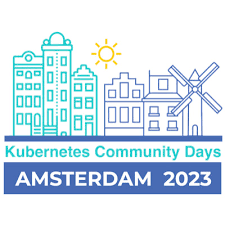
On the 23rd and 24th of February the Kubernetes Community Days (KCD) were organised by the Dutch Kubernetes meetup group backup by the CNCF. The first KCD of its kind was organised in 2019 in the Netherlands. Nowadays it is an CNCF supported event organised by the local community in a country. There are KCD events everywhere in the world. A successful KCD event consists of keynotes, workshops and presentations round the topic Kubernetes. It is not only talks. Important part is also the social component which focuses on the community. For instance a a rather large group of the attendees went after the event to a karaoke bar.This year at the of the conference was a vegan barbecue followed by a dance party which was free for all attendees and after 23:00 everybody was welcome. The location was the ‘party-location’ Westerunie.

For me this was the first time that I was not only an attendee but also a speaker. The first day I needed to do nothing so I was able to network and attend talks. The event started with the keynote Scaling the 4th Industrial Revolution of Sarah Polan of Hashicorp in which she made the comparison between the 1st, 2nd, and 3rd Industrial Revolution with the current 4th revolution and the patterns that are applicable in the past and still are.
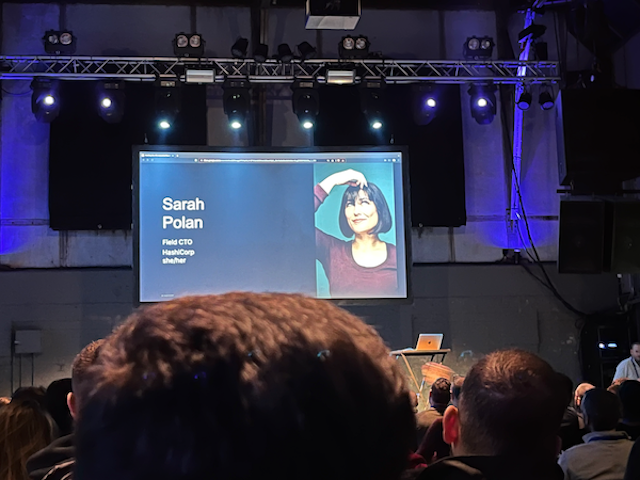
After this session I attended several other sessions. The sessions that I want to highlight are the following, the session of the ING about their Container Hosting journey by Robbin Siepman. Very nice insights on the journey of the ING and how to build there container platform. Other session that I want to highlight is the session from Kristina Devochko, the session Managed Kubernetes Service: Day Zero Survival Pack. This session contained some very good tips which helps you when you start with Managed Kubernetes. Between the sessions I had some good talks with people from the community. Also visited the booths of the different sponsors.
The second day of the event started with keynote Cloud to on-prem and back again: on-prem leanings from a cloud and Kubernetes native company, by Gijs van der Voort. I find 'real life' scenarios very interesting and found the challenges and the choices made to overcome the challenges very interesting to see. The choices between on-premise and in the cloud and the effects of these choices were interesting to see.
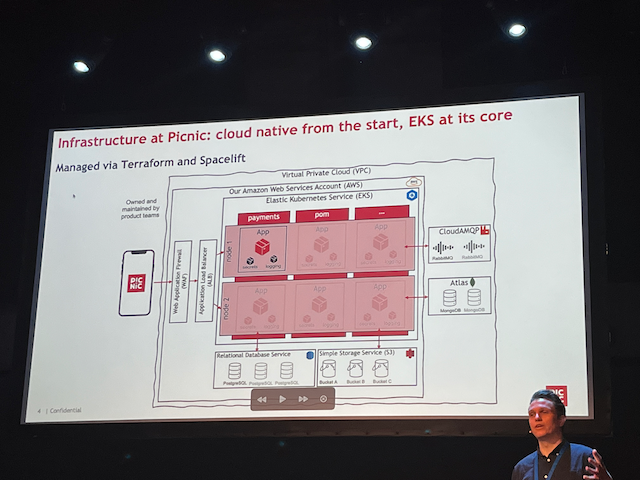
That morning it was also time for the workshop Kubernetes 201 by Luminis. I gave this workshop together with Dinant Paardenkooper. The goal of the workshop was to be a follow up on the workshop Kubernetes 101 which took place at Thursday. In the workshop we used managed Kubernetes. Originally the workshop was based on Azure Kubernetes Service (AKS) but in the week before we added also Elastic Kubernetes Service (EKS). Both deployment were done from the cloud shell that is provided by AWS and Azure, so that you don't have to install anything locally. For the deployment of EKS we made use of the tool eksutil which deploys a lot of the requirements for you and makes removing the environment also more easy. During the deployment of the Kubernetes environment, which takes around 10 minutes, we played a quiz which contained 15 basic questions around Kubernetes. The top 3 received a small gift. After the quiz we did a quick refresh of some of the commands used by Kubernetes and of the components. After that we continued with the exercises and focussed on exposing an application by using NGINX as load balancer. Next were the different deployment models and we finished up with some basic logging and monitoring. Upfront I thought it would not be enough material but it turned out that we had enough to fill up the slot of 1,5 hour. The workshop exercises are available on Github so if you want to take a look, they can be found here
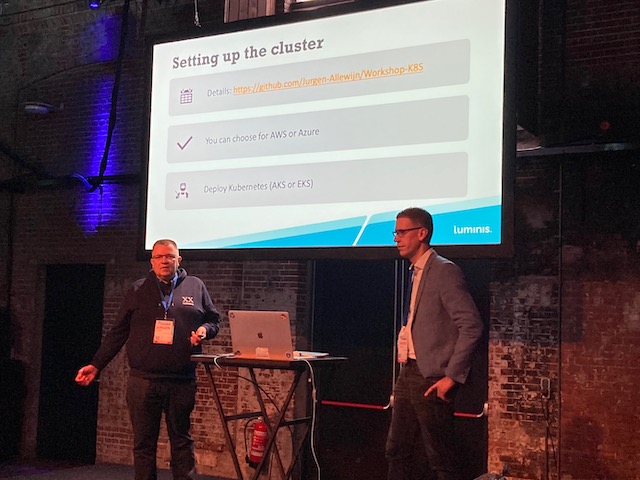
After the workshop it was time for a nice lunch and some time for our talk later that afternoon. Because of the workshop I was not able to attend Service MESH without the MESS by Raymond de Jong which I hope to see when it is available on the KCD YouTube channel.
The presentation, AKS unlighted, but what about Security and Multi-tenancy?, I also co-presented with Dinant Paardenkooper. In this talk we wanted to tell how we created a multi-tenant AKS cluster, for the municipality of Amsterdam, but still be compliant with regulations that apply for a local government. The talk was on the main stage and was also streamed on the KCD YouTube channel. The presentations will be available here so it is possible to see the talk. Our talk was composed of two parts, the business reason and the technical solution. In the business part we talked about the reasons behind the creation of multi-tenant cluster, like lack of Kubernetes operation and security knowledge within the teams and the cost aspect of running a Kubernetes environment. After that we spoke about the architecture and the decisions we made to come to a design. Next part was the more technical part in which we spoke about the translation of the design into an implementation. We addressed the challenges that we faced and showed a picture of how the solution now looks like at what a workload team gets when they will make use of our AKS service. We ended the presentation with the takeaways.
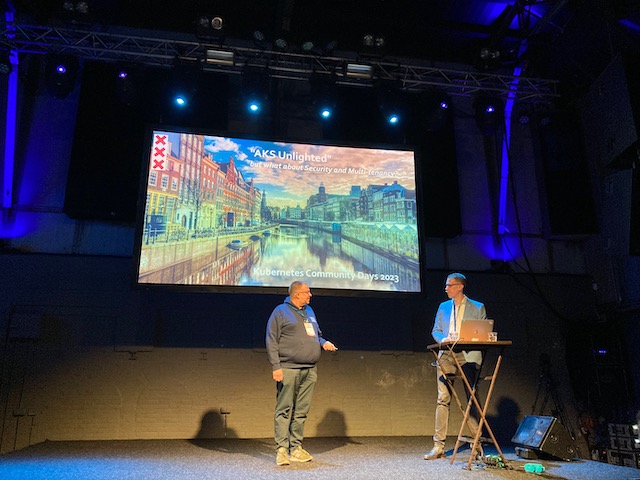
The event was closed with an excellent vegan barbecue. I really liked the vegan shredded chicken burger. In conclusion, for me the event was a succes. Attended some good sessions, reconnected with some people form the community I had not seen or spoken for some time. I want to thank the KCD team for the organisation.